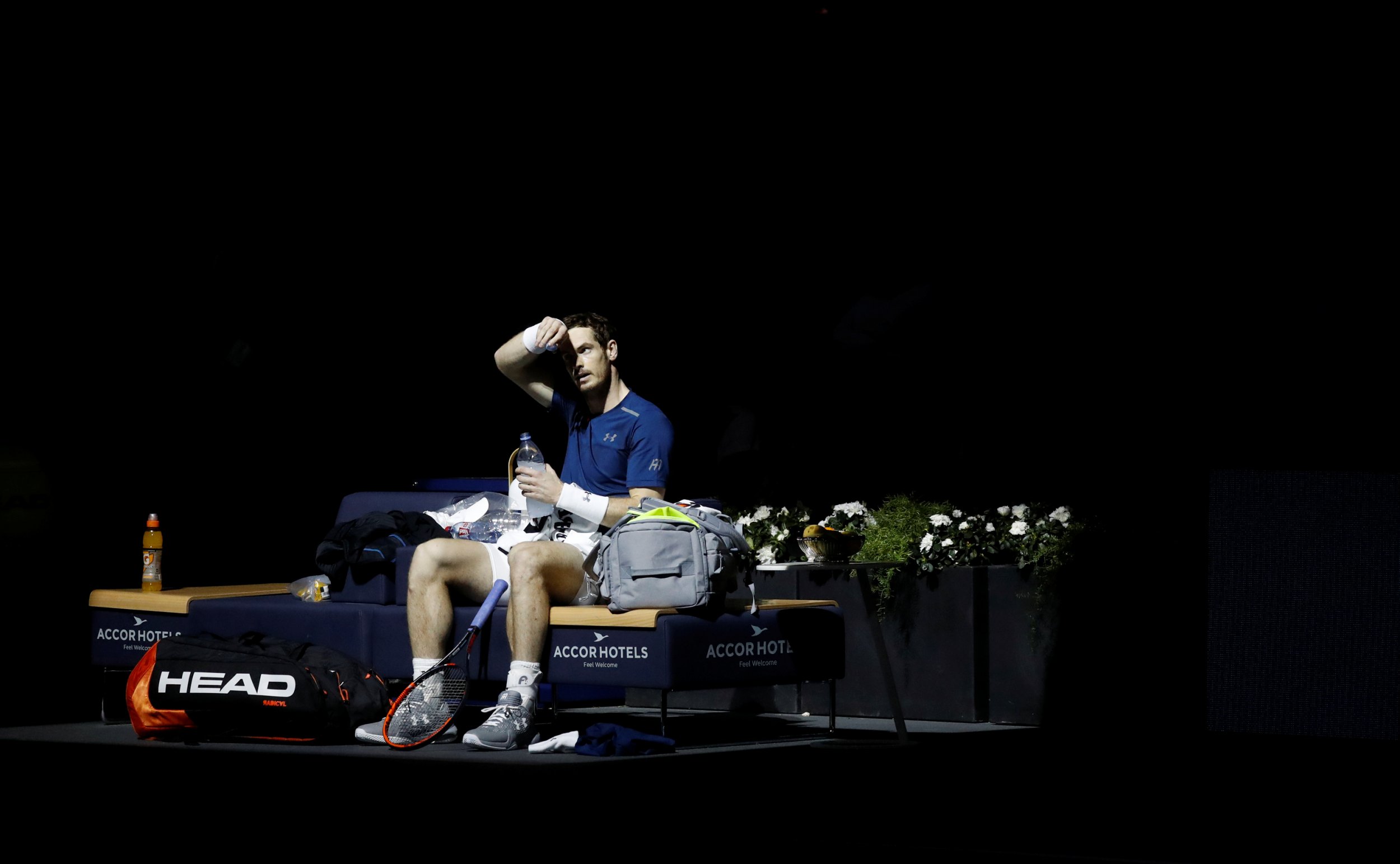
"You take the high road, and I'll take the low road." The song is as Scottish as a piece of shortbread in a tartan wrapper. Growing up in the Scottish town of Dunblane, Andy Murray would have heard it a thousand times, and he has spent his career rewriting it. He'll take the slow road.
Murray's first four Grand Slam finals all ended in defeat. His first win, in New York in 2012 against Novak Djokovic, was a gritty epic, staged in a high wind. His climb to the world No. 1 ranking has taken 11 years, the slowest ever in men's tennis. He is 29, an age at which many athletes have begun their descent.
Murray uses disaster as fuel for triumph. His victories tend to be bloody-minded, painful, powered by frustration. It's as if he needs to bring the worst out of himself before he can find the best. For Murray, a rally isn't a rally until it has run to 30 strokes and a profanity or two. Of all the modern greats, he has the best return and the worst second serve. He is a guerrilla among the tennis gods, turning defense, inch by inch, into wary attack. He can wait hours for the other guy to wilt—or years, in the case of Djokovic, who finally wobbled after 122 consecutive weeks at the top.
Murray is the younger brother of a tennis player, the doubles specialist Jamie, so catch-up is his natural game. He is the son of a tennis coach, Judy, so he had expertise on tap. He is a Scot in a very English sport, so he has an outsider's edge. As a teenager, he chose not to train with the Lawn Tennis Association in the U.K. and went to live in Spain instead; as a grown man, he hired a woman as his coach, the first male tennis star ever to do so.
His two purple patches have come under Ivan Lendl, a coach who gets straight to the medicine without reaching for the sugar. That's fine by Murray, who would rather be pushed than praised. Djokovic, who spent four years at No. 3, completed his leapfrog over Roger Federer and Rafael Nadal after he gave up gluten. Murray, surely wondering if he would be stranded at No. 4, gave up gluten too. Djokovic is Murray's age, but by developing faster he became, in effect, another big brother, there for the aping—and the toppling.
Murray has stuck to his script, which could have been written by Aesop—The Three Hares and the Tortoise. Without coming close to the Grand Slam, he has mastered the grand slog. He may not stay in front for long, as Djokovic has just as much spirit and more talent. But Murray is a man you can never write off.
The ATP World Tour finals continue in London to November 20.
Uncommon Knowledge
Newsweek is committed to challenging conventional wisdom and finding connections in the search for common ground.
Newsweek is committed to challenging conventional wisdom and finding connections in the search for common ground.





